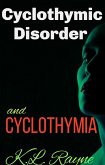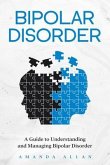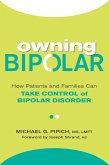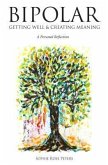I've been married to my husband for the past 18 years, I've experienced some of the most trying times in my life, but also some of the most rewarding experiences. My name is Marcella Gucci.
This journal was started because I am married to a man who suffers from ADHD and BIPOLAR disorder. In it, I detail the steps that my husband and I took to help him get back on the path to normalcy so that he can lead a normal life.
Bipolar disorder is a lifetime struggle, but it does not have to control your life.
The majority of people are familiar with bipolar disorder, a mental health illness characterized by manic episodes and significant bouts of sadness.
Bipolar II disorder varies from bipolar I disorder in that sufferers may never experience a full manic episode, but may endure moments of great energy and impulsiveness (hypomania) as well as melancholy and anxiety.
If you have been diagnosed with bipolar illness, or even if you suspect you may have this disorder, your extreme emotions may be frightening. There are, luckily, treatments that have been shown to work in the past and can help you calm your mind.
The mindfulness-based exercises in the journal will help you regulate your emotions, track your progress, and eventually lead a happier and more productive life. You will also learn crucial stress management, healthy decision-making, and problem-solving techniques.
But like anything in life, you will get out, what you have put in. I am not a doctor but have been exposed to almost every type of doctor or specialist in this field. I have just put down on paper what has worked for us and hope you can also benefit from our hard-earned experience.
A sample of the tone of the book below:
Why keeping a journal daily is so important?
Disorders of Mood
Emotions are represented by our moods. They have an impact on us every day. We are sad at times and happy at others. We may even experience both sadness and joy on the same day. However, people's moods can become "stuck" on sad at times. Alternatively, moods may shift dramatically or become extreme. When this happens, it has an impact on our lives. It could also be caused by a group of mental illnesses known as mood disorders.
Mood disorders are a type of mental illness that affects how you feel and think about yourself, others, and life in general. Depression, dysthymic disorder, and bipolar disorder are the three types of mood disorders.
Depression makes you sad or depressed. Some people describe depression as feeling "numb" or "without feelings." Depression can also make you angry, hopeless, and guilty. Many people who suffer from depression lose interest in activities they once enjoyed or isolate themselves from family and friends. However, depression can have an impact on more than just your mood: you may have difficulty concentrating or remembering. You could sleep or eat less or more than usual. You may also experience constant fatigue.
Seasonal affective disorder (SAD) is a type of depression that is influenced by the changing of the seasons. It typically affects people during the winter, when there is less daylight.
Postpartum depression is a type of depression that occurs after a woman gives birth. Postpartum depression is most likely caused by a combination of biological changes as well as social and emotional changes in the lives of parents.
Dysthymic disorder (also known as dysthymia) is a type of depression. When you have dysthymic disorder, your depression symptoms are milder but last longer.
Dieser Download kann aus rechtlichen Gründen nur mit Rechnungsadresse in A, B, CY, CZ, D, DK, EW, E, FIN, F, GR, H, IRL, I, LT, L, LR, M, NL, PL, P, R, S, SLO, SK ausgeliefert werden.









